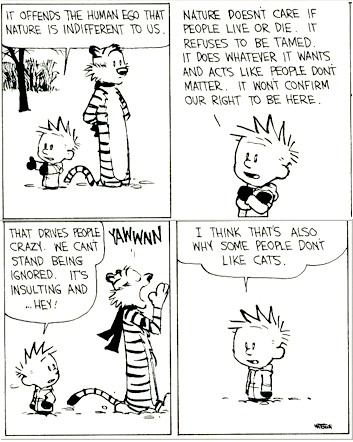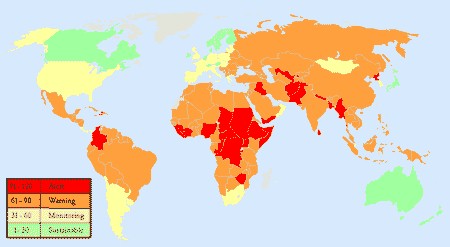 Reader caution: rant ahead A while ago I wrote an article about Bill Maher’s proclamation that the job of the media is to make what’s important interesting. The media are now so universally loathed that even lawyers and real estate speculators rate higher in public opinion. You can’t blame us, especially after last week’s disgraceful spectacle. The mainstream media have Maher’s advice exactly backwards: They’re trying to make what’s interesting (to the dumbed-down public, in the most lurid and sleazy sense) important in some way, when it’s not. In that sense they have become, in every sense of the word, nothing more than pimps and panderers. As the chart above shows, the world’s affluent nations are becoming (and North American nations have already become) Crooked Broker Societies. The rich and powerful no longer get their hands dirty actually doing anything of value. They merely use their money and power to intermediate between desperate vendors and weak, addicted buyers. And as James Surowiecki has pointed out, they’re not ‘honest brokers’ either, balancing the interests of vendor and buyer and mediating for a reasonable fee. They have divided up the brokerage role into two parts: an exploiter role, designed to subjugate and oppress the desperate supplier, and a procurer role, designed to pander to and gouge the weak buyer. The exploiters and procurers then collude (and sometimes merge to play both roles), paying the supplier next to nothing and charging the buyer a huge amount for worthless crap. The chart above shows how these roles siphon wealth from both suppliers and buyers, providing nothing of value in return, in just about every sector of our modern society. You see this in struggling nations, and in areas like North America’s inner cities, where poverty, desperation and lawlessness are endemic. The fact that this same tawdry oppression of suppliers and gouging of purchasers is now occurring everywhere attests to the dysfunction of our political, social and economic systems, and the growing sense of market anarchy, where any behaviour is justified if it is profitable, and where the ends always justify the means. It is evidence of a culture in the terminal stages of decline and disintegration. Nowhere is this more evident than in the mainstream ‘information’ media. This should probably not be surprising, when these media are owned by a corporatist oligopoly that measures success by profit, not by the quantity or quality of information it delivers. For the past week we have been subjected to the sorry spectacle of these media fawning over a single deranged man who set them up with the video and audio and the violence they needed to justify lazily and irresponsibly passing this off as somehow newsworthy. They were able to play this up for a week and it cost them essentially nothing. The consequence was to stir up enough hysteria to sell a lot of newspapers and attract enough bored ambulance-chasers to make the entire undertaking enormously profitable. The conservative politicians and corporatists loved it, too — it took attention away from rampant political and business corruption and incompetence, and allowed fear-mongers to advocate more crime laws, conservatives and preachers to lament the decline of moral values in our society, and propagandists of every stripe to exploit the event for the media circus it was. The message for publicity-hounds was clear: If you’re desperate to get a lot of global publicity in a hurry, make sure to (a) kill a lot of people, (b) do it in an affluent nation, (c) do it in a spectacularly gruesome way, and (d) pre-create and edit your own audio and video for the media so they can’t screw your message up. Whether or not it means anything, or there is any lesson to be learned from it, is irrelevant. In the meantime, between the propagandists, the media conglomerates and the advertisers, lots of profits were made and lots of political points were scored, and the citizenry was left as dumb as ever. Even more dumbed down, in fact, because of all the events that received little or no coverage while the mainstream media gleefully and rabidly pimped for a suicidal loser, political interest groups exploited the ‘event’ by misinforming the public about its ‘meaning’ (with no challenge whatever from the reporters), and shareholders and advertisers raked in the extra dough the publicity generated. It was a shameful, disgraceful performance but it’s one we are getting terribly used to from exploiters and procurers in every aspect of our lives. Whether it is the misogyny, sleazy product marketing and violence-promotion of rap videos, or the willful broadcasting of blatant corporatist lies in ‘advertising’, or the abrogation of responsibility for investigative journalism (and the ignoring of citizens’ whistle-blowing and investigation, lest it offend advertisers), or the obsession with the crime blotter while crises facing our world remain ignored because they’re too complex or too expensive to work on, the mainstream ‘information’ media show themselves to be nothing more than pimps and panderers, wasting our time and public bandwidth. Fiddling with sensationalist minutiae while the world burns. We need to liberate hard-working producers and beleaguered customers from the bullying freeloaders and corporate-welfare bums in the middle two columns of the chart above, fat, lazy, overpaid, greedy, obscenely powerful do-nothing middlemen all of them. Let’s start throwing out the crooked brokers who stand between us and reasonably-priced, socially and environmentally responsible, quality products and services and important, actionable information. Let’s peer-to-peer them all out ofbusiness. /rant Categories: Corporatism & Distorted Markets, and The Media
|
Navigation
Collapsniks
Albert Bates (US)
Andrew Nikiforuk (CA)
Brutus (US)
Carolyn Baker (US)*
Catherine Ingram (US)
Chris Hedges (US)
Dahr Jamail (US)
Dean Spillane-Walker (US)*
Derrick Jensen (US)
Dougald & Paul (IE/SE)*
Erik Michaels (US)
Gail Tverberg (US)
Guy McPherson (US)
Honest Sorcerer
Janaia & Robin (US)*
Jem Bendell (UK)
Mari Werner
Michael Dowd (US)*
Nate Hagens (US)
Paul Heft (US)*
Post Carbon Inst. (US)
Resilience (US)
Richard Heinberg (US)
Robert Jensen (US)
Roy Scranton (US)
Sam Mitchell (US)
Tim Morgan (UK)
Tim Watkins (UK)
Umair Haque (UK)
William Rees (CA)
XrayMike (AU)
Radical Non-Duality
Tony Parsons
Jim Newman
Tim Cliss
Andreas Müller
Kenneth Madden
Emerson Lim
Nancy Neithercut
Rosemarijn Roes
Frank McCaughey
Clare Cherikoff
Ere Parek, Izzy Cloke, Zabi AmaniEssential Reading
Archive by Category
My Bio, Contact Info, Signature Posts
About the Author (2023)
My Circles
E-mail me
--- My Best 200 Posts, 2003-22 by category, from newest to oldest ---
Collapse Watch:
Hope — On the Balance of Probabilities
The Caste War for the Dregs
Recuperation, Accommodation, Resilience
How Do We Teach the Critical Skills
Collapse Not Apocalypse
Effective Activism
'Making Sense of the World' Reading List
Notes From the Rising Dark
What is Exponential Decay
Collapse: Slowly Then Suddenly
Slouching Towards Bethlehem
Making Sense of Who We Are
What Would Net-Zero Emissions Look Like?
Post Collapse with Michael Dowd (video)
Why Economic Collapse Will Precede Climate Collapse
Being Adaptable: A Reminder List
A Culture of Fear
What Will It Take?
A Future Without Us
Dean Walker Interview (video)
The Mushroom at the End of the World
What Would It Take To Live Sustainably?
The New Political Map (Poster)
Beyond Belief
Complexity and Collapse
Requiem for a Species
Civilization Disease
What a Desolated Earth Looks Like
If We Had a Better Story...
Giving Up on Environmentalism
The Hard Part is Finding People Who Care
Going Vegan
The Dark & Gathering Sameness of the World
The End of Philosophy
A Short History of Progress
The Boiling Frog
Our Culture / Ourselves:
A CoVid-19 Recap
What It Means to be Human
A Culture Built on Wrong Models
Understanding Conservatives
Our Unique Capacity for Hatred
Not Meant to Govern Each Other
The Humanist Trap
Credulous
Amazing What People Get Used To
My Reluctant Misanthropy
The Dawn of Everything
Species Shame
Why Misinformation Doesn't Work
The Lab-Leak Hypothesis
The Right to Die
CoVid-19: Go for Zero
Pollard's Laws
On Caste
The Process of Self-Organization
The Tragic Spread of Misinformation
A Better Way to Work
The Needs of the Moment
Ask Yourself This
What to Believe Now?
Rogue Primate
Conversation & Silence
The Language of Our Eyes
True Story
May I Ask a Question?
Cultural Acedia: When We Can No Longer Care
Useless Advice
Several Short Sentences About Learning
Why I Don't Want to Hear Your Story
A Harvest of Myths
The Qualities of a Great Story
The Trouble With Stories
A Model of Identity & Community
Not Ready to Do What's Needed
A Culture of Dependence
So What's Next
Ten Things to Do When You're Feeling Hopeless
No Use to the World Broken
Living in Another World
Does Language Restrict What We Can Think?
The Value of Conversation Manifesto Nobody Knows Anything
If I Only Had 37 Days
The Only Life We Know
A Long Way Down
No Noble Savages
Figments of Reality
Too Far Ahead
Learning From Nature
The Rogue Animal
How the World Really Works:
Making Sense of Scents
An Age of Wonder
The Truth About Ukraine
Navigating Complexity
The Supply Chain Problem
The Promise of Dialogue
Too Dumb to Take Care of Ourselves
Extinction Capitalism
Homeless
Republicans Slide Into Fascism
All the Things I Was Wrong About
Several Short Sentences About Sharks
How Change Happens
What's the Best Possible Outcome?
The Perpetual Growth Machine
We Make Zero
How Long We've Been Around (graphic)
If You Wanted to Sabotage the Elections
Collective Intelligence & Complexity
Ten Things I Wish I'd Learned Earlier
The Problem With Systems
Against Hope (Video)
The Admission of Necessary Ignorance
Several Short Sentences About Jellyfish
Loren Eiseley, in Verse
A Synopsis of 'Finding the Sweet Spot'
Learning from Indigenous Cultures
The Gift Economy
The Job of the Media
The Wal-Mart Dilemma
The Illusion of the Separate Self, and Free Will:
No Free Will, No Freedom
The Other Side of 'No Me'
This Body Takes Me For a Walk
The Only One Who Really Knew Me
No Free Will — Fightin' Words
The Paradox of the Self
A Radical Non-Duality FAQ
What We Think We Know
Bark Bark Bark Bark Bark Bark Bark
Healing From Ourselves
The Entanglement Hypothesis
Nothing Needs to Happen
Nothing to Say About This
What I Wanted to Believe
A Continuous Reassemblage of Meaning
No Choice But to Misbehave
What's Apparently Happening
A Different Kind of Animal
Happy Now?
This Creature
Did Early Humans Have Selves?
Nothing On Offer Here
Even Simpler and More Hopeless Than That
Glimpses
How Our Bodies Sense the World
Fragments
What Happens in Vagus
We Have No Choice
Never Comfortable in the Skin of Self
Letting Go of the Story of Me
All There Is, Is This
A Theory of No Mind
Creative Works:
Mindful Wanderings (Reflections) (Archive)
A Prayer to No One
Frogs' Hollow (Short Story)
We Do What We Do (Poem)
Negative Assertions (Poem)
Reminder (Short Story)
A Canadian Sorry (Satire)
Under No Illusions (Short Story)
The Ever-Stranger (Poem)
The Fortune Teller (Short Story)
Non-Duality Dude (Play)
Your Self: An Owner's Manual (Satire)
All the Things I Thought I Knew (Short Story)
On the Shoulders of Giants (Short Story)
Improv (Poem)
Calling the Cage Freedom (Short Story)
Rune (Poem)
Only This (Poem)
The Other Extinction (Short Story)
Invisible (Poem)
Disruption (Short Story)
A Thought-Less Experiment (Poem)
Speaking Grosbeak (Short Story)
The Only Way There (Short Story)
The Wild Man (Short Story)
Flywheel (Short Story)
The Opposite of Presence (Satire)
How to Make Love Last (Poem)
The Horses' Bodies (Poem)
Enough (Lament)
Distracted (Short Story)
Worse, Still (Poem)
Conjurer (Satire)
A Conversation (Short Story)
Farewell to Albion (Poem)
My Other Sites





 I sense that wild creatures, including those who visit my bird feeder when it’s convenient for them, feel the same way about us that the Pirahã do. They feel sorry for us, perhaps the same way we feel sorry for big, clumsy, maladapted King Kong, or the dinosaurs.
I sense that wild creatures, including those who visit my bird feeder when it’s convenient for them, feel the same way about us that the Pirahã do. They feel sorry for us, perhaps the same way we feel sorry for big, clumsy, maladapted King Kong, or the dinosaurs. 








